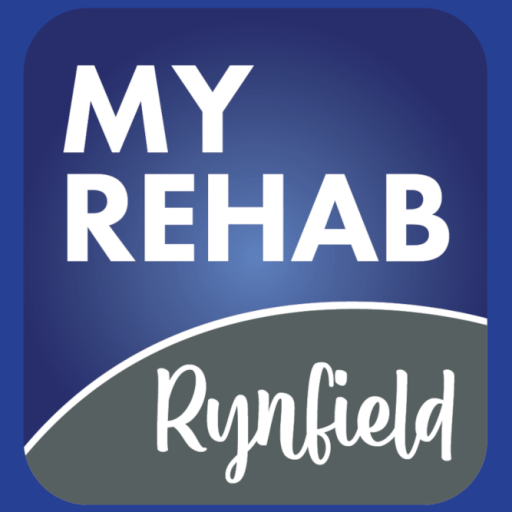What Are Effective Relapse Prevention Strategies?
Effective relapse prevention strategies include identifying our triggers, like stress and emotional distress. We can strengthen our recovery by developing a solid support network with friends, family, and support groups. Establishing healthy routines, such as consistent meal times and exercise, is crucial. Setting realistic goals helps us stay focused while engaging in mindfulness techniques enhances our self-awareness. Utilizing professional help provides tailored strategies for our unique challenges. Remember, engaging in healthy activities fuels our emotional expression and fulfillment. With these strategies, we’re better equipped to prevent relapse and embrace our recovery journey. There’s much more to explore on this topic!
Understanding Relapse Triggers
To effectively prevent relapse, we must first identify the triggers that can lead us back to old habits. These triggers can vary widely from person to person, but they often include stress, certain environments, and specific social situations. By recognizing our unique triggers, we empower ourselves to take proactive steps to manage them.
For instance, when we’re feeling overwhelmed, we might be tempted to revert to familiar coping mechanisms. It’s crucial to develop awareness around these feelings and find healthier alternatives, like engaging in physical activity or practicing mindfulness.
We should also pay attention to places or people that remind us of past behaviors. If we find ourselves in a situation that feels risky, we can choose to leave or change our plans. This knowledge allows us to create strategies that keep us away from these triggers.
Developing a Support Network
Building a strong support network is essential for maintaining our commitment to recovery and navigating the challenges that may arise. We’ve got to connect with people who understand our journey and can offer encouragement, guidance, and accountability. This network can include family, friends, support groups, or even mentors who’ve faced similar struggles.
When we actively engage with our support network, we create a safe space where we can share our feelings and experiences. It’s crucial to be open and honest about our needs and vulnerabilities. By doing so, we foster deeper connections and help others understand how to support us best.
We should also remember that our support network isn’t just about receiving help; it’s about giving back too. We can uplift others who are on their own recovery paths, reinforcing our commitment to sobriety while strengthening our bonds.
Let’s prioritize regular check-ins with our network, whether through meetings, phone calls, or casual hangouts. These interactions can help us stay grounded and focused on our recovery goals. By developing and nurturing our support network, we’re better equipped to handle life’s ups and downs together.
Establishing Healthy Routines
Establishing healthy routines helps us create stability and structure in our daily lives, reinforcing our commitment to recovery. By setting consistent schedules for our meals, exercise, and sleep, we foster a sense of normalcy that can be incredibly grounding. We can start our mornings with a nutritious breakfast, which not only fuels our bodies but also sets a positive tone for the day.
Incorporating regular physical activity into our routines is essential too. Whether it’s a brisk walk, yoga, or a gym session, moving our bodies helps release endorphins that boost our mood and reduce stress. We can also designate time for relaxation and hobbies that bring us joy, allowing us to unwind and recharge.
Moreover, having a set time for reflection or journaling can help us process our thoughts and emotions. By regularly assessing our feelings and progress, we can better understand our triggers and make informed decisions about our recovery journey.
Ultimately, these routines serve as powerful tools for maintaining our focus and purpose. When we establish healthy habits, we lay a strong foundation for long-term success in our recovery process.
Practicing Mindfulness Techniques
Mindfulness techniques offer us practical tools to stay present and centered, helping us manage stress and cravings effectively. By incorporating these practices into our daily lives, we can cultivate a greater awareness of our thoughts and emotions, which ultimately supports our recovery journey. Here are four mindfulness techniques we can easily practice:
- Deep Breathing: We can take a few moments each day to focus on our breath. Inhaling deeply through our nose and exhaling slowly through our mouth helps ground us in the present moment.
- Body Scan: We can lie down comfortably and mentally scan our bodies from head to toe. This helps us notice any tension and encourages relaxation.
- Mindful Walking: During a walk, we can pay attention to our surroundings—the sounds, sights, and sensations. This brings our focus back to the here and now.
- Gratitude Journaling: Each day, we can write down three things we’re grateful for. This practice shifts our mindset and fosters a positive outlook.
Setting Realistic Goals
As we develop our mindfulness practices, we can also focus on setting realistic goals that align with our recovery journey. By establishing clear, achievable objectives, we create a roadmap that helps us navigate the challenges we face. It’s essential to break down larger aspirations into smaller, manageable steps. This way, we can celebrate our progress along the way, reinforcing our commitment to recovery.
When we set our goals, let’s ensure they’re specific, measurable, and time-bound. For instance, instead of saying, “I want to feel better,” we might specify, “I’ll practice mindfulness for ten minutes every day this week.” This clarity not only keeps us accountable but also allows us to track our progress effectively.
Additionally, we should be flexible in our goal-setting. Life can throw unexpected challenges our way, and adapting our goals can prevent feelings of failure. If we find ourselves struggling, it’s okay to reassess and adjust our targets. Ultimately, the focus should be on growth and learning, not perfection. By setting realistic goals, we empower ourselves to stay on track and foster resilience in our recovery journey.
Utilizing Professional Help
Utilizing professional help can significantly enhance our recovery journey by providing us with tailored strategies and support. When we seek guidance from experts, we gain valuable insights that can help us navigate the challenges of recovery more effectively. Here are some key ways professional help can benefit us:
- Individualized Treatment Plans: Professionals assess our unique situations and develop customized plans that address our specific needs and triggers.
- Therapeutic Support: Engaging in therapy allows us to explore underlying issues, learn coping mechanisms, and gain emotional support from trained professionals.
- Accountability: Regular check-ins with a counselor or therapist hold us accountable for our progress, making it easier to stay committed to our recovery goals.
- Skill Development: Professionals teach us essential skills for managing stress, avoiding triggers, and building resilience, ensuring we’re better equipped to handle potential relapse situations.
Engaging in Healthy Activities
Engaging in healthy activities plays a crucial role in maintaining our recovery and preventing relapse. When we fill our time with positive pursuits, we not only distract ourselves from cravings but also build a fulfilling life that supports our sobriety. Whether it’s exercising, exploring new hobbies, or volunteering, these activities keep us connected to our goals and values.
We can start by incorporating regular physical activity into our routines. Exercise releases endorphins, which boost our mood and reduce stress. It’s a great way to channel our energy and promote overall well-being. Exploring creative outlets, like painting or writing, can also help us express our emotions and process our experiences.
Additionally, participating in community events or support groups fosters connections with others who share our journey. These relationships can provide encouragement and accountability, making it easier to stay on track.
Let’s not forget the importance of mindfulness practices, like yoga or meditation, which can enhance our self-awareness and coping skills. By actively engaging in healthy activities, we create a positive environment that nurtures our recovery and strengthens our commitment to a healthier, happier life.
How Can I Identify My Relapse Triggers?
We can identify our personal relapse triggers by reflecting on past experiences, noting emotional states, situations, or people that led to cravings. Journaling helps us track patterns and recognize what to avoid in the future.
What Role Does Nutrition Play in Relapse Prevention?
Nutrition plays a crucial role in our overall well-being. By fueling our bodies with healthy foods, we strengthen our resilience, improve our mood, and reduce cravings, making it easier to stay on track with our goals.
Are There Specific Exercises That Help Reduce Cravings?
We’ve found that specific exercises, like yoga and aerobic workouts, can significantly reduce cravings. Engaging in physical activity boosts our mood and helps us manage stress, making it easier to resist temptations.
How Do I Handle Social Situations That Trigger Relapse?
When we face social situations that trigger relapse, we can prepare by identifying potential triggers, practicing assertiveness, and having a support buddy. Staying focused on our goals helps us navigate these challenges effectively.
Can Pets Aid in Relapse Prevention Strategies?
We believe pets can significantly aid in our recovery journey. Their unconditional love and companionship provide emotional support, reduce stress, and encourage us to engage in healthier routines, helping us stay focused on our goals.

